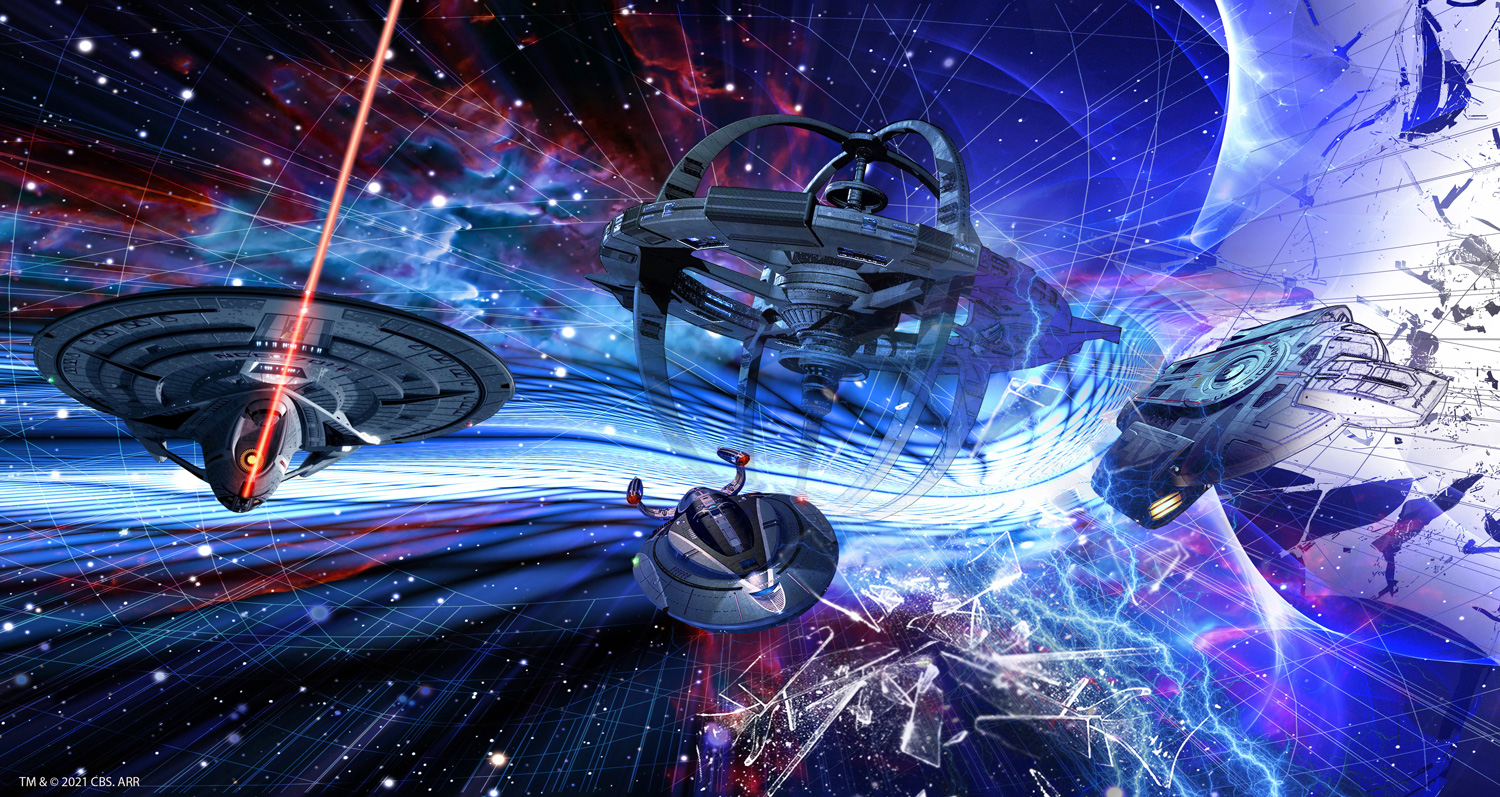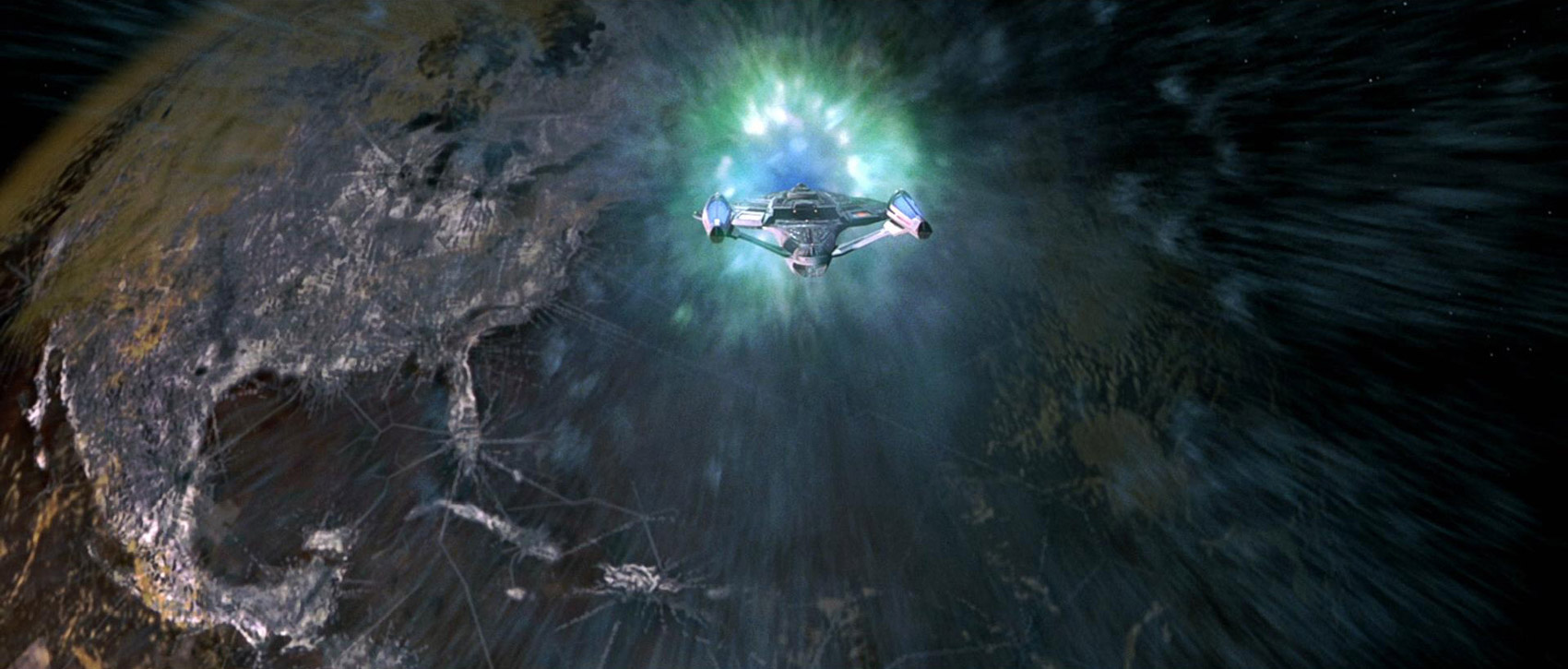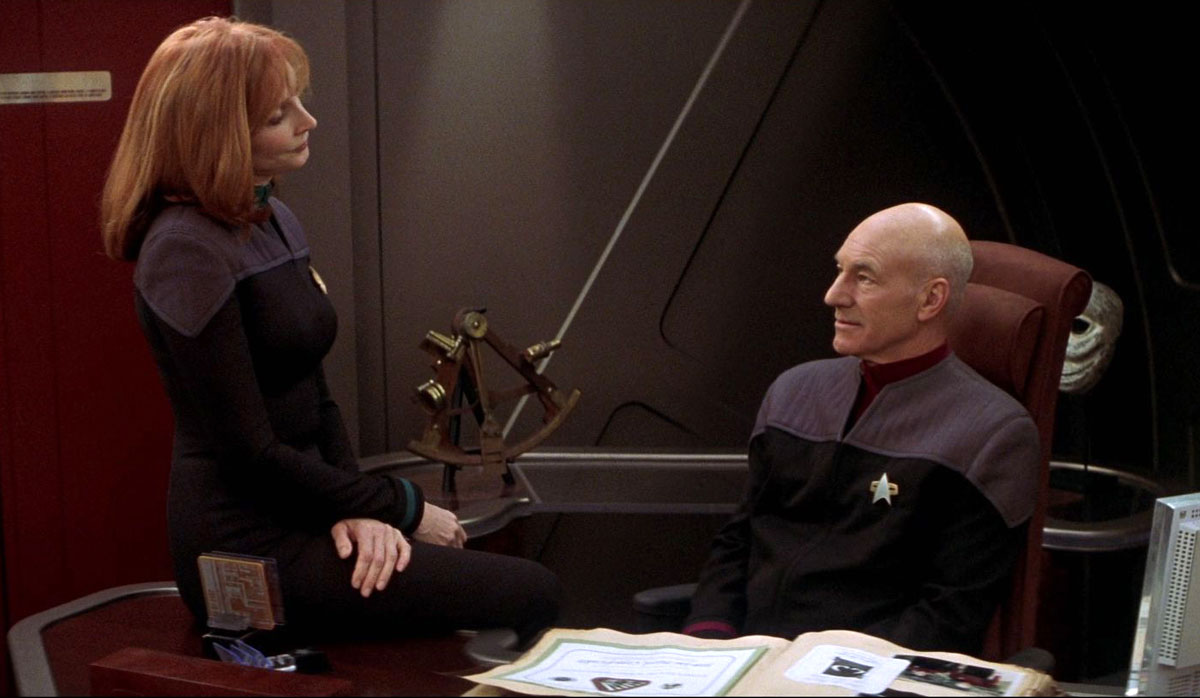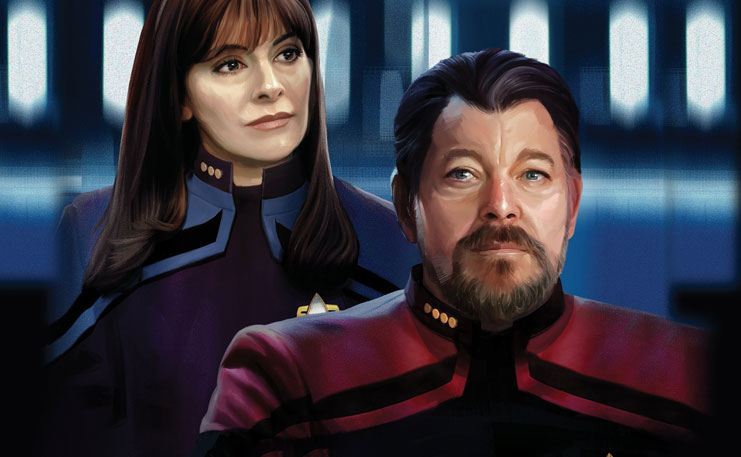David Mack’s Star Trek: Coda — Oblivion’s Gate, the third novel in its trilogy, is the last novel I will ever read under the 20-year Star Trek literary continuity.
And given that I have been a passenger on this journey for two decades, complete with amazing new stories, fascinating characters, themes, and ideas, that’s no small thing. To be honest, I finished Oblivion’s Gate almost three weeks ago, and I just haven’t quite been able to sit down and put down on paper all the ways that I am processing this moment.
If you aren’t a big fan of the books, you might be wondering: what’s all the fuss about? It’s just about a novel. But to those of us who used the books as an important mechanism to keep the spirit of Star Trek alive through a period when we thought the franchise was never going to return to the 24th century and many of the characters that we loved, this is a sad moment.
It meant something to us. It meant a lot to me. And now it’s over.
With Coda, David Mack and his fellow authors – Dayton Ward and James Swallow – have given us an end to the story. It is a definitive, complete, and total ending, coming as part of an utterly gripping narrative that seizes your attention on page one and never lets it go all the way through the end. (Which is saying something, because this must be one of the longest Star Trek novels ever published at 422 pages.)
Along the way, David Mack weaves together a number of themes and ideas from his own works in the Star Trek literary continuity, including: the resurrection of Data (Cold Equations), the fate of the Mirror Universe (Rise Like Lions), the story of Julian Bashir (Section 31: Control), the revelation that Kira is the Hand of the Prophets (Warpath), and the absolute pinnacle of Mack’s Star Trek work — the Destiny trilogy — and the origin of the Borg.
You’ll laugh a bit, and you’ll cry a lot. This story makes you really feel for its characters, and for the sacrifices they must endure for each other. The story is incredibly well told in ways both moving and beautiful, and then it ends — and it’s that end I am really struggling with.
In Oblivion’s Gate, the characters of the Star Trek literary continuity discover that they are not living in the Prime Timeline — the “main universe” that spans all on-screen Star Trek content (excluding the three Chris Pine-led films — and that they are instead living in an unstable timeline.
Their timeline was created by the machinations of the Borg; but not the Collective we’re used to, but the assimilated Earth briefly viewed by the Enterprise-E crew as they chased the time-traveling Borg Sphere back to 21st century Montana in the early moments of Star Trek: First Contact.
The creation of this unstable timeline, the home of all of the book stories of the shared continuity over the last two decades, is what gives the Devidians the idea to begin collapsing entire timelines and feeding on the neural energy of all the dying souls within.
The only solution that can stop the Devidians from moving on to collapse more stable timelines, including the Prime Timeline, is to completely undo the creation of this universe, called “The First Splinter.” That’s right: the entire novelverse timeline isn’t just destroyed, but is completely erased before it can even form, in a choice that even JJ Abrams and the Kelvin Timeline film team declined to make when they rebooted the franchise back in 2009.
With the close of Coda, the authors now definitively state that because of the actions of this tale, the First Splinter timeline ceases to ever be created — and that every single event you’ve read about in those books, and every character moment you’ve followed along the way, explicitly never happened.
All the book original characters you’ve come to care about (Where are my Elias Vaughn fans?), all the relationships you’ve invested in (Picard and Crusher, or Janeway and Chakotay), and all the journeys these characters have been on in stories lasting two decades never happened — and leave no indelible mark on the Star Trek multiverse except through their sacrifice…. and as pages on the shelf of Benny Russell’s apartment.
The authors of Coda clearly want that to be enough. The sacrifice of these characters is the noblest expression of pure intentions you could ever ask for, as not only do they give their lives in service of stopping the Devidians — sometimes in horrific ways — but nobody will ever know that they did it. It’s the purest form of sacrifice, whose nobility is designed to warm you and bolster your resolve despite the grief of the situation.
But it leaves me entirely cold. In the final 50 pages, the book does posit that in other timelines, events very similar to those experienced in the books will have happened — opening the door for “new book” authors to include elements from novel history in future tales.
That’s no comfort to me, knowing now that the specific characters I was invested in — and the ones whose fates I cared about — are gone. And while for some characters there’s some hope that they might appear in tie-in work in the Prime Timeline (James Swallow’s The Dark Veil features Prime Timeline counterparts for several First Splinter Titan characters), for some of those characters that will never be an option.
And given how few books Simon & Schuster are publishing these days, it’s just not practical to assume that more than a handful of characters from The First Splinter will ever make an appearance in the Prime Timeline.
So Jean-Luc Picard is never going to have a son named Rene; Will and Deanna Troi-Riker’s daughter is named Kestra, not Natasha. Those characters, who are both young children, died in this story in pretty horrifying ways. And there’s almost no hope of seeing either character ever appear in any other form in any other work of official Star Trek fiction.
Choosing to kill those children, who have no future outside of the First Splinter, is one whose motivations I think I understand, since it heightens the nobility of the sacrifice. But that’s not how I want my Star Trek books to end. There’s enough horror and misery in this world as it is.
For me, Coda does not end on a hopeful or optimistic note. It ends on a note of horrifying emptiness, that is going to be a constant presence alongside me any time I choose to re-read one of the stories of the Deep Space Nine relaunch, Voyager relaunch, The Next Generation relaunch. Even stories that are almost entirely unconnected from the events of Coda — like Kirstin Beyer’s Voyager relaunch novels, will be haunted by the knowledge that those characters will too be erased from existence.
I sincerely hope that I’m the only person for whom the ending of Oblivion’s Gate does not work — and truly, I want to tip my hat to David Mack, Dayton Ward, and James Swallow for making such a courageous choice, when they could easily have picked a much milder conclusion, allowing this continuity to ‘ride off into the sunset.’
But after weeks of reflecting on it, I can’t help but think I would have much preferred that safer option; something that acknowledges the events of the First Splinter take place in a separate alternate timeline from the Prime Timeline, allowing for their stories to continue off screen — even if it’s just in our imaginations.
At the end of The Next Generation, Deep Space Nine, Voyager, and Enterprise, even as the images fade to black and we knew that we’d never follow the characters week-to-week again — as fans, we know those characters’ stories continue, even if we didn’t see them happen. It’s a comfort, even as we mourn that we won’t get to continue to follow their adventures in the same way going forward.
That’s what I wanted for the Star Trek literary continuity. I’m sad I didn’t get that. And that makes the grieving process even worse.
![]()
Dayton Ward’s Star Trek: Coda #1 — Moments Asunder, James Swallow’s Star Trek: Coda #2 — The Ashes of Tomorrow, and David Mack’s Star Trek: Coda #3 — Oblivion’s Gate are in stores now.






